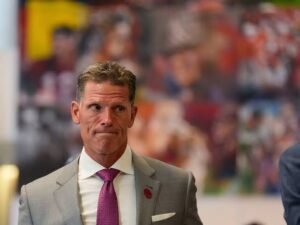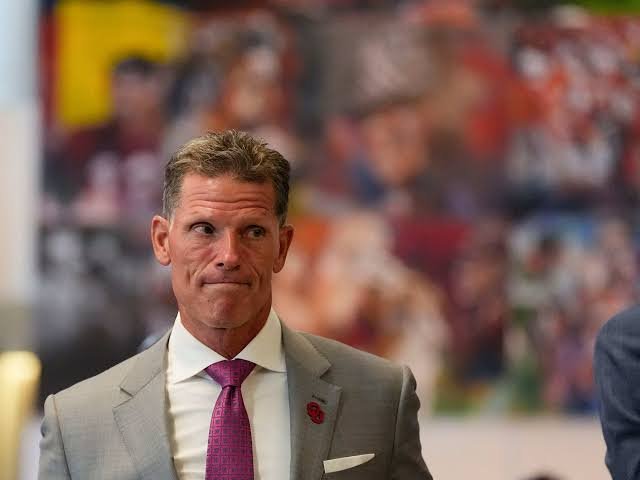The pressure on Oklahoma Sooners head coach Brent Venables has reached a new level following a series of disappointing campaigns that have left fans and analysts questioning the program’s trajectory. After back-to-back underwhelming seasons, the team’s much-anticipated SEC debut failed to deliver the explosive statement many hoped for. Instead of establishing themselves as an immediate conference contender, the Sooners struggled to find consistency on both sides of the ball, leaving their championship aspirations on shaky ground. The disappointment has fueled skepticism about whether Venables can truly restore Oklahoma’s powerhouse status in college football’s most competitive league.

What makes this situation even more complex is the substantial commitment the university has already made to Venables. His six-year, $51 million extension was seen as a vote of confidence from the administration, signaling belief in his long-term vision for the program. However, such an investment also comes with heightened expectations, and patience among the fan base appears to be wearing thin. With each loss, the pressure grows—not only to win but to do so convincingly against top-tier SEC opponents.
In an effort to accelerate the rebuilding process, Venables brought in former NFL executive Jim Nagy to provide strategic guidance and professional-level scouting insight. Nagy’s experience in talent evaluation and roster building is expected to help Oklahoma sharpen its recruiting edge, especially in identifying players who can adapt quickly to SEC competition. While this move has been praised in some circles, critics argue that leadership changes off the field will only matter if the on-field product improves significantly.

The challenges facing Venables extend beyond X’s and O’s. He must contend with the SEC’s grueling schedule, where every week feels like a playoff matchup. Oklahoma’s fan base is accustomed to high-powered offenses, conference titles, and College Football Playoff appearances, meaning there’s little tolerance for mediocrity. The SEC debut season served as a harsh reminder that the margin for error is razor-thin, and rebuilding in this environment demands not just good coaching, but elite player development and adaptability.
Adding to the pressure is the perception that rival programs have adapted faster to the new conference dynamics. While schools like Texas appear to be thriving, the Sooners are still searching for their identity under Venables. This contrast has amplified the scrutiny, with some questioning whether the program’s current leadership can match the pace of improvement needed to remain nationally relevant. The upcoming season, therefore, carries even greater weight—it may well be seen as a defining chapter in Venables’ tenure.

Ultimately, the coming months will be a critical proving ground. Venables will need to leverage Nagy’s NFL-level insight, sharpen recruiting efforts, and ensure his coaching staff can execute a clear, winning strategy. Anything short of a significant turnaround could deepen the calls for change, despite the financial commitment already made. In the SEC, where reputations can shift dramatically in a single season, the Sooners’ path forward will depend on whether Venables can translate vision into victories before the window of patience closes entirely.
